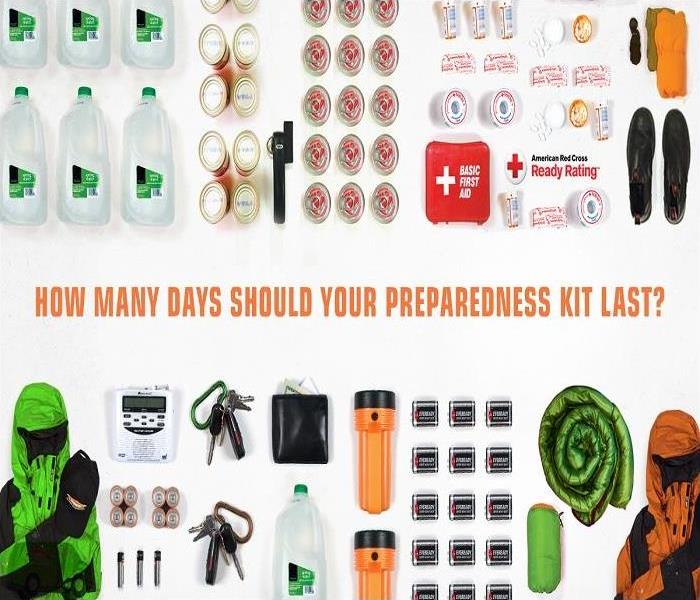Summer Storm Safety In Cartersville GA
7/26/2019 (Permalink)
 Your emergency preparedness kit should have plenty of water, food, and essential emergency survival items.
Your emergency preparedness kit should have plenty of water, food, and essential emergency survival items.
While the spring season is known for the potential to experience severe weather, the threat exists throughout the summer months as well. In fact, the potential for severe weather even increases in some areas. Hurricane season in the Atlantic begins June 1st and runs through November 30th.
While it may be difficult to prepare for the unpredictable, there are steps you can take now to help ensure you are ready when disaster strikes. One way to prepare your business for any type of disaster is to establish an Emergency READY Profile (ERP). The best part is that it is completely cost free. Contact SERVPRO of Bartow County to learn more about our free ERP service and how it can help you be better prepared for any size disaster. Consider the following tips when preparing for an approaching storm.
Before The Storm
- Build an emergency supply kit and develop a communication plan.
- Unplug any electronic equipment before the storm arrives.
- Secure outdoor objects that could blow away or cause damage.
- If you are outdoors, get inside a building, home or hard top vehicle (convertibles are not preferred)
- Shutter windows and secure outside doors. If shutters are not available, close window blinds, shades or curtains.
During The Storm
- Use your battery-operated NOAA Weather Radio for updates from your local officials.
- Avoid contact with corded phones. Cordless and cellular phones are safest to use.
- Avoid contact with electrical equipment or cords.
- Unplug appliances and other electrical items, such as computers. Power surges from lightning can cause serious damage.
- Stay away from windows and doors.
After The Storm
- Never drive through a flooded roadway.
- Stay away from storm-damaged areas to keep from putting yourself at risk.
- Stay away from downed power lines and report them immediately.
Emergency Supply Kit
*Recommended item for basic emergency supply kit
- Water (one gallon per person per day)
- Food (non-perishable 3 day supply)
- Manual can opener
- Battery operated radio, preferably a NOAA Weather Radio
- Flashlight and extra batteries
- First aid kit
- Whistle to signal for help
- Clothing
- Dust masks or bandannas
- Plastic sheeting, garbage bags and duct tape
- Wrench or pliers to turn off utilities
- Hygiene items
- Important documents; copies of insurance policies, identification and bank account information
- Cash
- Fire extinguisher
- Matches in a waterproof container






 24/7 Emergency Service
24/7 Emergency Service